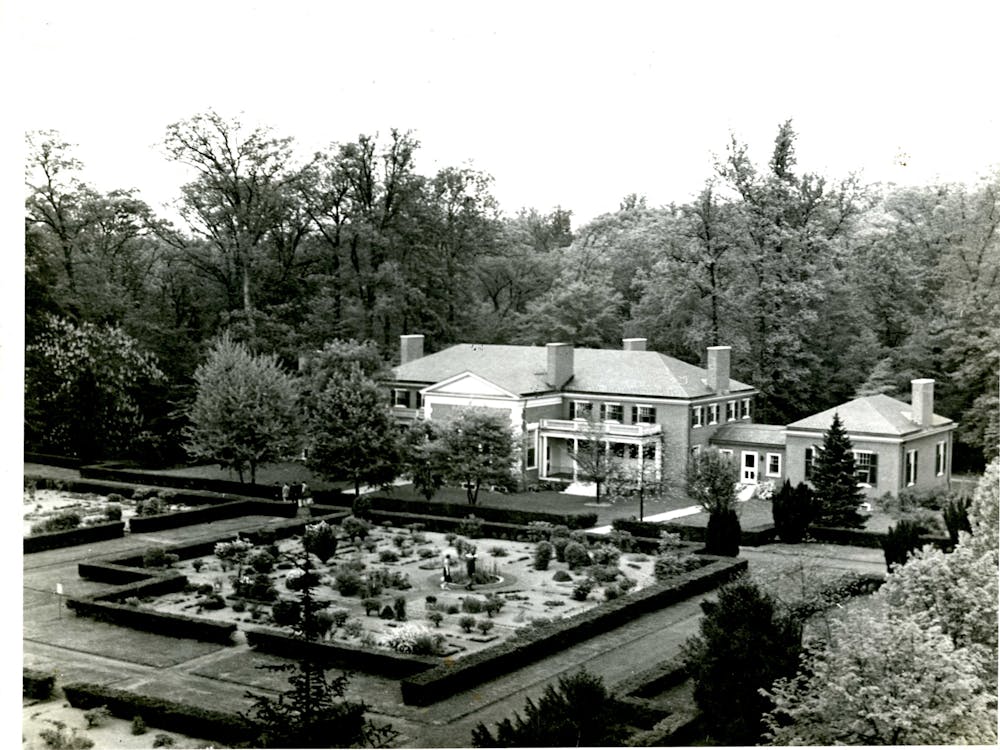Renowned poet, speaker and activist Sonia Sanchez gave a talk on racial and gender discrimination as a part of Women’s History Month. Her lecture was hosted on March 16 by the Office of Gender Equity and co-sponsored by the Office of Multicultural Affairs (OMA).
Sanchez, who is 82 years old, participated in the Civil Rights movement of the 1960s. As a poet and teacher, she has been actively fighting against discrimination throughout her career.
In the 1960s, Sanchez was heavily involved in the Black Arts Movement, in which black artists produced politically motivated works. She recently compiled an anthology of poetry and other writing by black authors to educate younger generations about who took part in the movement and what they were fighting for.
“What’s significant for young people now is that they see... when your country abuses you, when you have a president who abuses you also — then there’s a way to resist,” Sanchez said. “We show that people resisted during that time, and we can resist.”
She said that movements today should learn from organizations fighting for civil rights in the mid-20th century.
“In those days, blacks and activists and the rest of the people, poets and artists, moved with a certain confidence, a certain defiance, a certain affirmation that this territory we want belongs to us,” she said.
A primary difference between the past and the present, according to Sanchez, is that underrepresented minorities then were just gaining access to jobs in positions of power like business executives, state representatives and professors.
However, she stressed that activism did not come from above, but rather stemmed from the people.
“That confidence was there and it did not derive so much from the black activists on campus, or in corporations or Congress or the cities, as it did from the torrential social force of those early blacks,” she said. “A torrential rise of genius, love, of Malcolm and Martin and others, many of whom would never, ever ‘trespass’ on any campus or corporation.”
Sanchez also shared some of her personal experiences with oppression that she had seen as a teacher and written about in her published works.
Freshman Bex Dansereau thought that Sanchez’s poetry reflected a unique perspective on race and discrimination.
“Poets and teachers both see the world differently than the layperson on the street,” she said. “They meet hundreds of thousands of people and see hundreds of thousands of different perspectives.”
According to Dansereau, Sanchez’s familiar with both the supporting and opposing arguments aids her work as an activist.
Sanchez said that poets tend to portray the world in a different light, which allows them to bring truth to contradictions.
Sanchez also touched on how her identity influences her perspective.
“I come before as one who has challenged the law and this country,” she said. “I come now as poet, professor, black woman, activist and mother. I am, as Angela Davis says, placing women of color at the center in a discourse.”
Dansereau also liked that Sanchez acknowledged that people of different sexualities and gender identities can be oppressed.
“I thought it was amazing how this 82-year-old woman could be so progressive when a lot of people like to use the argument that in their day and age, it was just period-typical homophobia and racism,” Dansereau said. “Clearly that’s not stopping this 82-year-old woman.”
Sanchez spoke about the importance of activism in contemporary society, relating it back to protests in the 1960s. She said that she saw a reincarnation of the civil rights movement in the Black Lives Matter movement and advocated for more activism on behalf of other minorities.
She also explained why she continues to speak like she did in the mid-20th century.
“We have not been treated well and treated equal,” Sanchez said. “These women and men of African descent, Asian, Latino, white working class women, LGBT+, Native Americans, Muslims. I’m talking to you on this topic of where we were, where do we go from here as human beings in the 21st century.”
Dansereau also commented on Sanchez’s relevance in modern society.
“I feel like it was less about women’s history and giving us the same old rhetoric about ‘well now you have the right to vote because of all these dead people’ and more about how you have to really fight for your rights, especially in this day and age where you having those rights is not really guaranteed,” Dansereau said. “You just have to keep fighting to ensure that you are treated like a human being.”
Sanchez said that it is important to be educated about the history of oppression in this country and to understand the political processes that perpetuate oppression today.
She said that it is important to have professors involved with social activism because their education and hands-on perspective gives them better insight.
“They were educated and political at the same time,” she said. “One of the key parts about this movement is education. We don’t teach... civics, history, herstory, anything that talks about anything that they should know at some point to understand why this country is not teaching people to think critically about anything.”
According to Sanchez, minorities must be educated and aware of their histories so that they understand how to fight oppression.
She is excited that, after a lull following the Civil Rights Movement, there is a resurgence of activism by young people.
“Until recently, that social force was temporarily dormant, exhausted by bitter struggle, assassinations of leaders, drugs, lying and rape, so to speak. The present timidity of people is a logical tension of the temporary malaise, the temporary inertia of that force,” Sanchez said. “I say temporary because we knew that every 20 or 30 years that force would recuperate, and it did: Black Lives Matter.”






















Please note All comments are eligible for publication in The News-Letter.